Search the Special Collections and Archives Portal
Search Results

Newsletter, Women Organized to Respond to Life-threatening Diseases (WORLD), January 1998
Date
Archival Collection
Description
Newsletter from WORLD with columns by women affected by HIV and AIDS.
Text
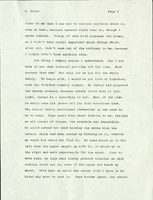
Chapter from autobiography by Bella Stern, 1980
Date
Archival Collection
Description
In this chapter, Stern describes her upbringing in Russia and fleeing to Poland. It is accompanied by a letter to the publishing company William Morrow.
Text
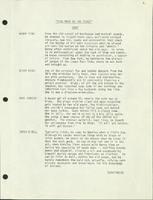
Script for television pilot, This Must Be the Place by Hank Henry and Bill Willard, 1950s
Date
Archival Collection
Description
The preface and script for a sitcom television show conceived of by Hank Henry and Bill Willard "to evoke the spirit of fun and laughs springing out of conflict and understanding between the old comedy school and the new school."
Text
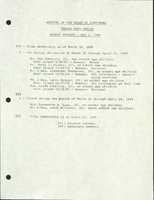
Minutes from Temple Beth Sholom Board of Directors meetings, June 1988 - May 1989 (1 of 2)
Date
Archival Collection
Description
Meeting minutes include reports from committees of the board, correspondence, and balance sheets.
Text
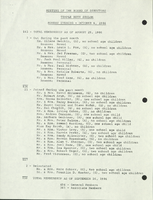
Minutes from Temple Beth Sholom Board of Directors meetings, June 1987 - May 1988 (2 of 2)
Date
Archival Collection
Description
Meeting minutes include reports from committees of the board, correspondence, and balance sheets.
Text
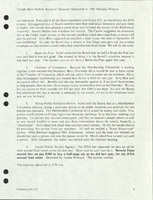
Minutes from Temple Beth Sholom Board of Directors meetings, September 1992 - December 1992
Date
Archival Collection
Description
Meeting minutes include reports from committees of the board, correspondence, and balance sheets.
Text
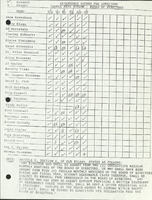
Minutes from Temple Beth Sholom Board of Directors meetings, June 1988 - May 1989
Date
Archival Collection
Description
Meeting minutes include reports from committees of the board, correspondence, and balance sheets.
Text
Minutes from Temple Beth Sholom Board of Directors meetings, January 1957 - April 1963
Date
Archival Collection
Description
The meeting minutes of the board of directors of Temple Beth Sholom, then known as the Jewish Community Center of Las Vegas, Inc., include the proceedings of meetings held from 1957 to 1963.
Text
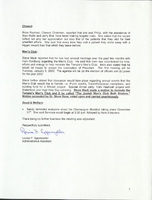
Minutes from Temple Beth Sholom Board of Directors meetings, June 1999 - December 1999
Date
Archival Collection
Description
Meeting minutes include reports from committees of the board, correspondence, and balance sheets.
Text
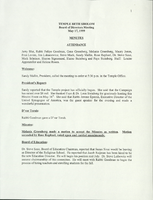
Minutes from Temple Beth Sholom Board of Directors meetings, January 1999 - June 1999
Date
Archival Collection
Description
Meeting minutes include reports from committees of the board, correspondence, and balance sheets.
Text
